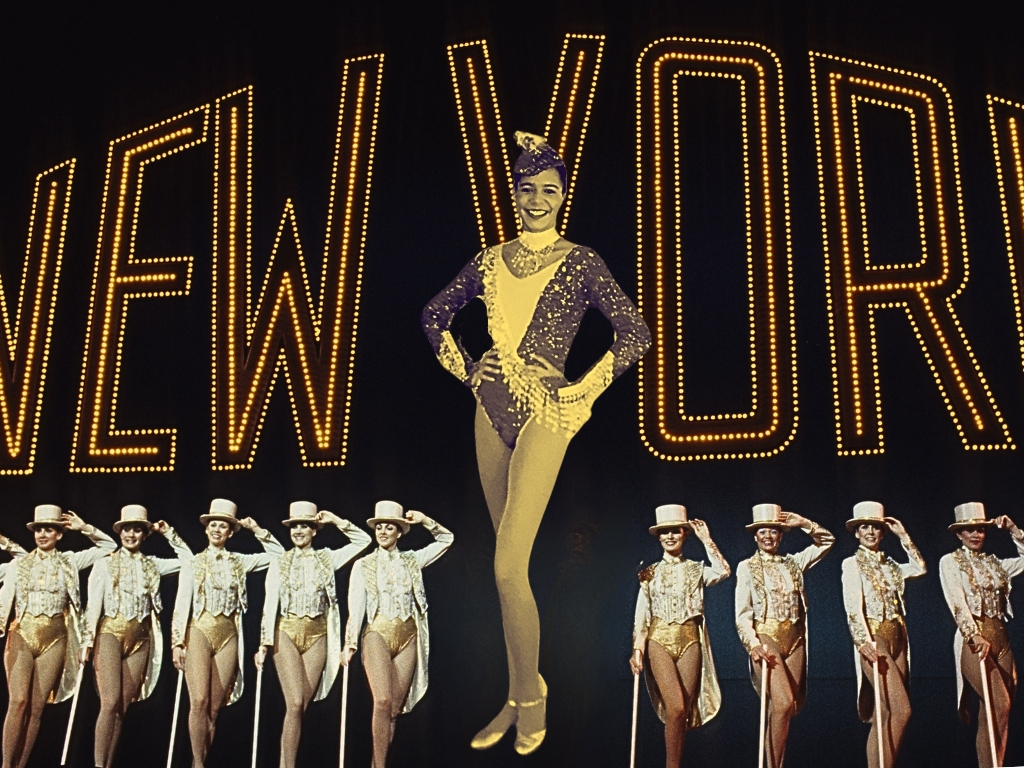
Image: SFD Media/Getty/Courtesy of Jennifer Jones
In 1987, the Rockettes had been high-kicking for audiences for more than six decades—without a single Black woman on the line. It wasn’t an oversight. It was policy, tradition, and intentional exclusion, all masked as a commitment to uniformity and “authenticity.” That changed when Jennifer Jones, the first Black Rockette, stepped onto the stage at Radio City Music Hall. A young dancer with big Broadway dreams and a backbone of steel, she didn’t just join the Rockettes—she kicked down a door that had been shut for generations.
Now, Jones is telling her story in Becoming Spectacular: The Rhythm of Resilience from the First African American Rockette—a memoir that’s part personal journey, part cultural reckoning. We spoke with Jones about the barriers she broke, the cancer diagnosis that nearly derailed her future, and the grit it took to keep going.
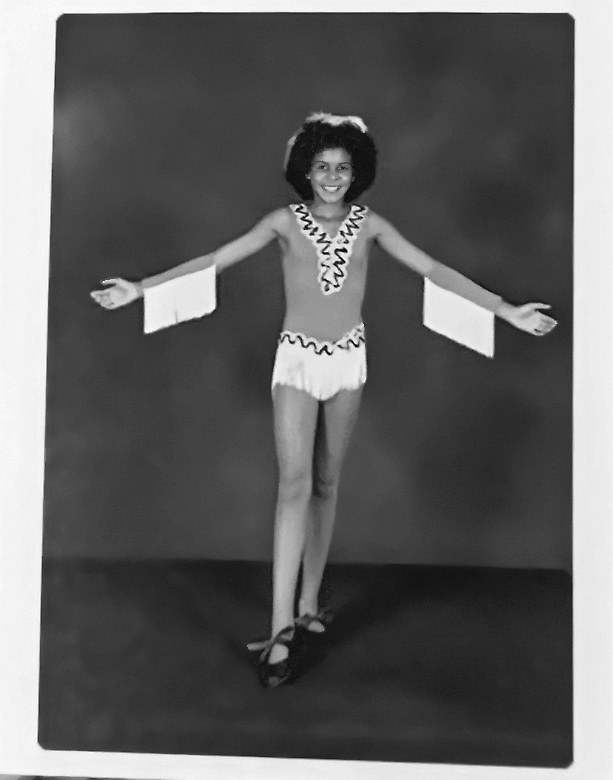
Image: Courtesy of Jennifer Jones
Q: What was your journey to being a Rockette like?
When I was in fourth grade, I was the shyest kid in school. My teacher was going to pick six people to do the Jitterbug and for some reason, he picked me. I was very nervous. But once I got on the stage, it kind of felt like home.
My parents were big Broadway people, and when The Wiz came to Broadway with Stephanie Mills, Mabel King, André De Shields, and an all-Black cast, they took me and my sister to see it. My parents are in an interracial marriage, so coming from that they wanted me to see people who looked like me do things. I fell in love with it, not just seeing people that look like me on such a great, grand stage, but the acting and dancing. We would wait backstage for their autographs after the show, and I remember watching them walk out of this magical backstage door and staring at their autographs on the way home. I knew at that young age I wanted to be on a stage doing what they did and walking out of the backstage door.
Q: What did it take for the Rockettes to shake up their antiquated status quo and welcome you in?
Russell Market founded the Rockettes in St Louis, Missouri, in 1925, and in 1925, Black people anywhere were not allowed to dance on the same stage as White people. That was the norm back then. You would think that in 1987 under the backdrop of New York City, there would’ve been a Black dancer on the Rockette line. But in the early 1980s Violet Holmes, who Russell had passed the line down to, still had this antiquated thought process. She was quoted in The New York Times as saying that having one or two Black women on the line would distract from the uniformity of the Rockettes, which is the hallmark.
It took Hazel Dukes from the NAACP knocking on Radio City’s door for years, saying that you’re not an equal opportunity employer. When I came onto the line, I think they had to—they were getting a lot of pushback. There were people who were resistant to the change, people in management who didn’t want me there, there were ladies on the line who weren’t welcoming. But then there were the people who were saying that, yes, it’s time to have a Black woman, Latinas, Asian people on the line. I leaned into the ladies who were willing to help me be the best Rockette possible.
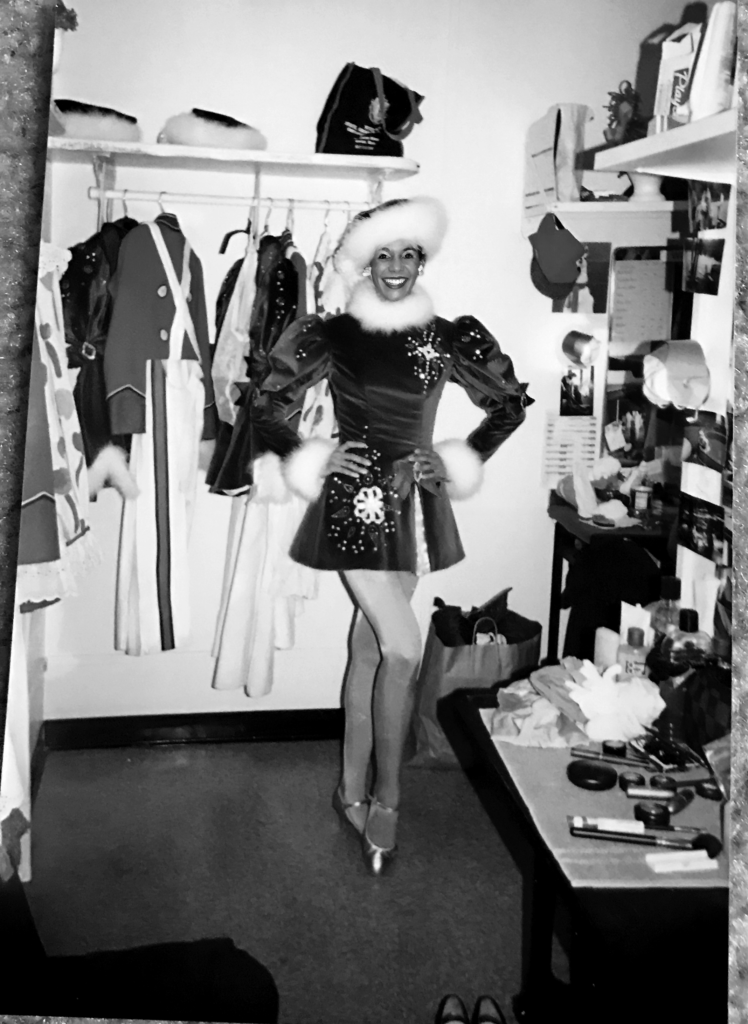
Image: Courtesy of Jennifer Jones
I Didn’t Know I Was Making History
Q: Were you aware at the time of the magnitude of this boundary you were breaking?
I didn’t know the magnitude, and that was for several different reasons. For one, I was very young. Also, Radio City didn’t really tell me I was the first Black Rockette until after I learned about it on the news, and then they threw me into media training. One of the first things they said was Violet was misquoted in what she told The New York Times. I didn’t know the history of the Rockettes. All I knew was that “she said this and she really didn’t, it just came out wrong. She didn’t really mean it against Black people,” but I didn’t understand the antiquated thought process behind it.
Then right before my Super Bowl Halftime Show, the director of PR pulled me aside and told me that I’m old news. Nobody cares about me. Nobody cares about my story, and I’m just lucky to be there. So at 20 years old, I’m like, she’s in PR. She knows what the media wants, and I guess nobody really cares. As soon as it was given to me, it was stripped from me. I took what she said to heart and I thought nobody cared, so I didn’t know the magnitude or the difference I was making in history.
Q: Is there anything you’d like to see happen specifically with the Rockettes or in the dance and entertainment world in general?
Zoe Saldana just got the first Oscar as a Dominican woman, which was great to see! I think there’s still growth that needs to come out in the entertainment industry all around. I just hope that we can keep moving forward in that direction.
Q: You were diagnosed with colon cancer and told you didn’t have long to live. You also faced some racial disparities in your diagnosis. Tell us about that journey.
When I had turned 50, I knew something was off, and I went to see the doctor and asked to be seen for a colonoscopy. She looked at me—someone who was a vegetarian for 25 years and physically active—and said, “Oh, you’re fine.” When I went to the scheduler, I said, “Can I please be seen right away? Something’s wrong.” She scheduled me for two weeks later, and that’s when the doctor came back and said that I had cancer and I had about five years to live.
She directed me to a surgeon and he didn’t seem to be too worried about it, so I was like, “How bad can this be?” When I finally went to Memorial Sloan Kettering, when I was met by an almost all-female oncology and surgical team, one of the doctors said, “What did your other doctor tell you?” I said, ”He didn’t say anything.” Her mouth hit the floor and I was diagnosed with stage three colorectal cancer. I had eight rounds of chemotherapy, and surgery to remove the tumor. Today, I’m six years cancer free.
Colorectal cancer affects the Black community 20 percent more, and we’re 40 percent more likely to die from it. I would say to anyone who is going through health challenges, you definitely have to advocate for yourself and find the doctors who you feel 100 percent comfortable with who are going to go fight for you.
Q: As a cancer survivor, how has your relationship with your body changed?
After going through treatments and having surgery, it’s a new relationship with my body. It took about a good year-and-a-half for me to get used to going to the bathroom again, and how to move and live my life without that diagnosis hanging over my head.
Becoming Spectacular: The Memoir, the Movement, the Message
Q: What are you hoping people take away from your memoir?
My life has certainly been a journey, and one that I’m so thankful that I’ve gotten to share my story through a children’s book that I wrote and also a doll. Hopefully I can inspire kids that they can really go for their dreams—whether it’s a chef or an astronaut or a soccer player.
I’m very excited about Becoming Spectacular. It’s important for dance history, the Rockettes’ history, women’s history, Black history, American history. I’m so proud to be able to tell it so there aren’t any questions about some of the things that I’ve gone through.
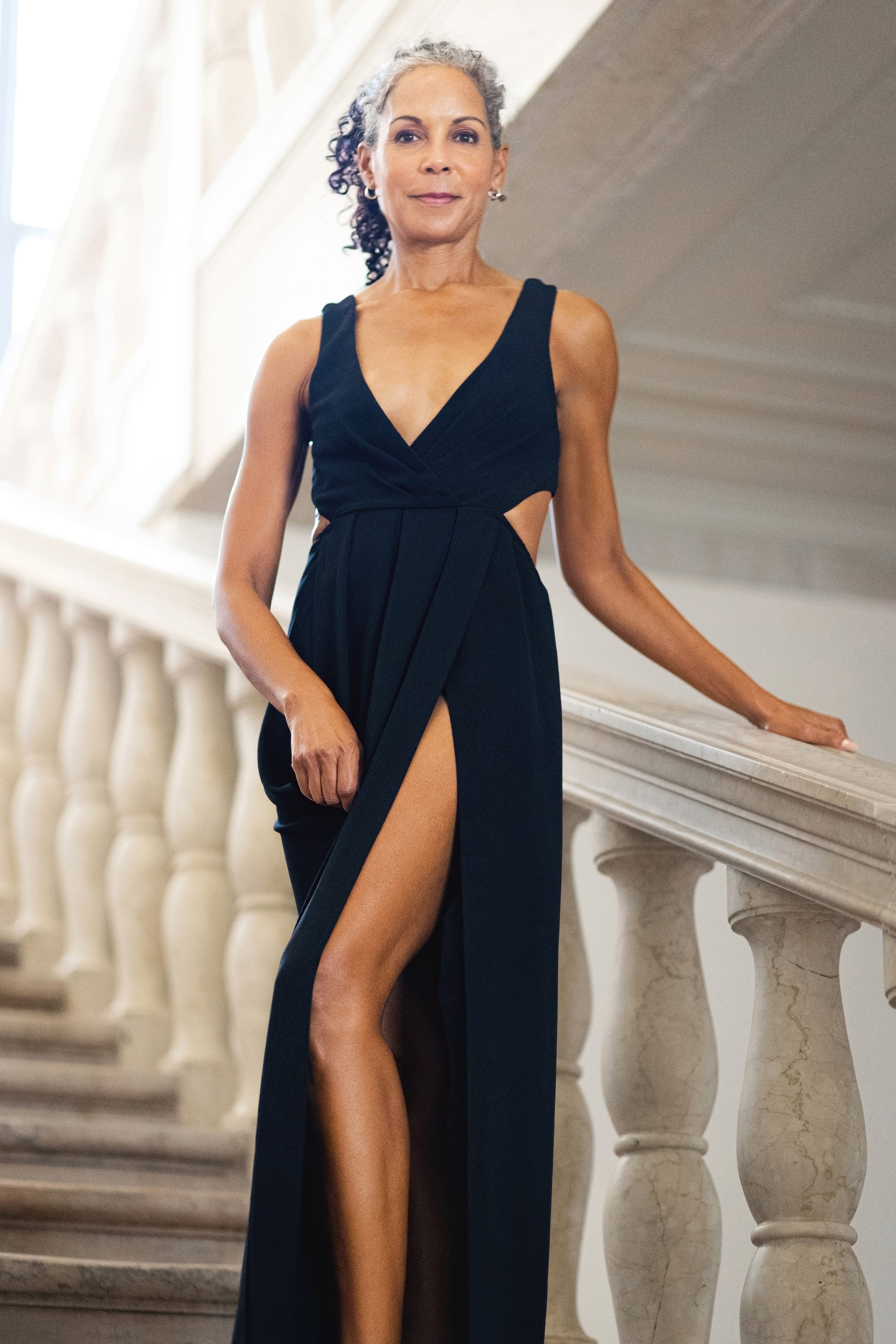
Image: Ben Esner
Jennifer Jones was once dismissed as “old news,” but her impact is anything but outdated. As the first Black Rockette, she shattered a 62-year-old barrier and claimed her place in history. “I stand on the shoulders of the women before me who tried,” she said, honoring those who were denied a spot on the line simply because of their skin color.
Even now, decades later, the pride remains. Like the moment she burst onto the Super Bowl halftime stage and thought, “I was supposed to be here.”
For Jones, the Rockettes weren’t just a dance troupe—they were a symbol of exclusion she refused to accept. Her story is about more than performance. It’s about breaking rules that never should have existed, and opening doors for those who come next.
It’s a landmark in history, and hearing it in her own words, there’s no question: What she did mattered—and it still does today.
This interview has been edited for length and clarity.

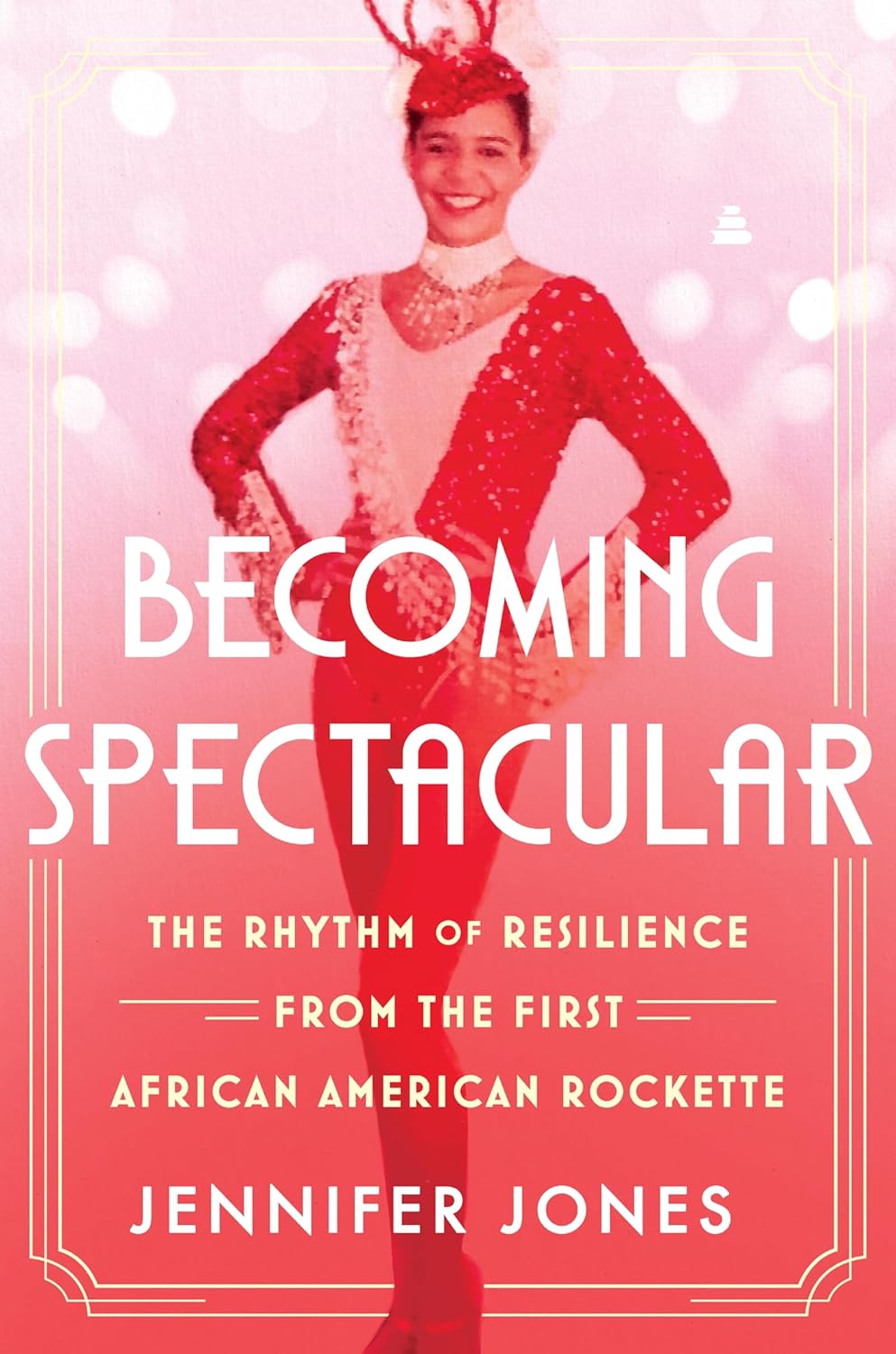

0 Comments